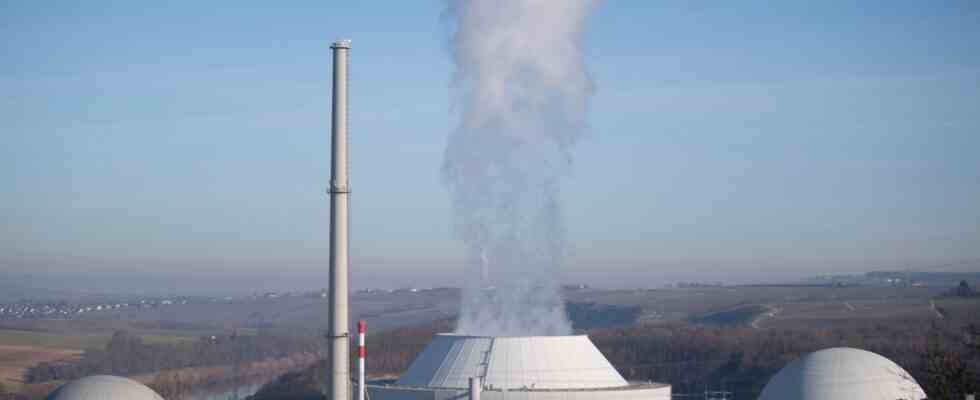analysis
Status: 05.09.2022 10:18 p.m
Despite the contrary recommendation of the network operators, the nuclear power plants will initially be taken off the grid at the end of the year. Some Greens would have accepted the stretching operation – the discussion about it should therefore continue.
The power supply could reach its limits in winter under certain conditions. This is shown by the new stress test of the power grid operators. The companies therefore recommend the continued operation of the three remaining nuclear power plants. But that’s going too far for Federal Economics Minister Robert Habeck – at least for the time being.
It is a press conference in which two worlds collide. On the one hand, there are the electricity network operators who, on behalf of politicians, have calculated whether there will be enough electricity in winter. So whether the electricity demand can be met at any time and whether the grids can ensure the balance between electricity suppliers and electricity consumers. The gloomy message: The supply situation in Germany and throughout Europe could be “extremely tense” in winter, and in extreme situations consumers could even be “orderly switched off for limited periods of time”. An alarm call.
bundle of measures
Of course, it doesn’t have to come to that, after all, scenarios are expected here: With a particularly cold winter. A high gas price. problems with other energy sources. However, assumptions that were considered extreme at the start of the stress test in mid-July have now turned out to be a real possibility.
Against this background, the power grid operators recommend a whole bundle of measures to ensure security of supply in winter: It makes sense and is necessary to use all possibilities for generating electricity – and thus also the three remaining nuclear power plants Emsland, Isar 2 and Neckarwestheim 2. Their continued operation could ensure that a “load undersupply can be largely avoided” and that the network also becomes somewhat more stable.
Greens would probably have accepted the stretching operation
For Habeck, the result of this stress test could have been the golden bridge to let the nuclear power plants run a few months longer, in so-called extended operation, which some top politicians in the Greens recently seemed to like. But the economics minister doesn’t go that far after all – he consulted party friends that afternoon.
His suggestion: Emsland should close as planned at the end of the year, Isar 2 and Neckarwestheim 2 should become reserve power plants for a few months. Switched off to possibly still be available in an emergency situation and for a transitional period until April 2023. According to the economics minister, it was a balancing decision for him: After all, nuclear energy is a high-risk technology. And as far as developments in the energy market are concerned: more is known in December, says Habeck, who at the same time admits that the later decisions are made, the more difficult they are.
Nuclear power remains an option
For the current situation on the electricity market, Habeck’s decision is therefore basically not a decision. The question of the short-term continued use of nuclear power remains in limbo. Perhaps quite consciously in view of the fierce discussions about nuclear energy in the run-up to the Lower Saxony elections – i.e. where the Greens are strongly associated with the anti-nuclear movement. The FDP is already talking about a “political emergency exit”.
Even after the presentation of the stress test, there are indications that the discussions about a limited continued operation of the nuclear power plants will continue. It is “a question of common sense to enable every climate-neutral kilowatt hour now,” tweeted the parliamentary director of the FDP parliamentary group, Johannes Vogel. The liberal coalition partner is not only concerned with climate protection and security of supply, but also with the price of electricity, which has recently reached dizzying heights. The more suppliers in the market, the lower the price, so the hope.

